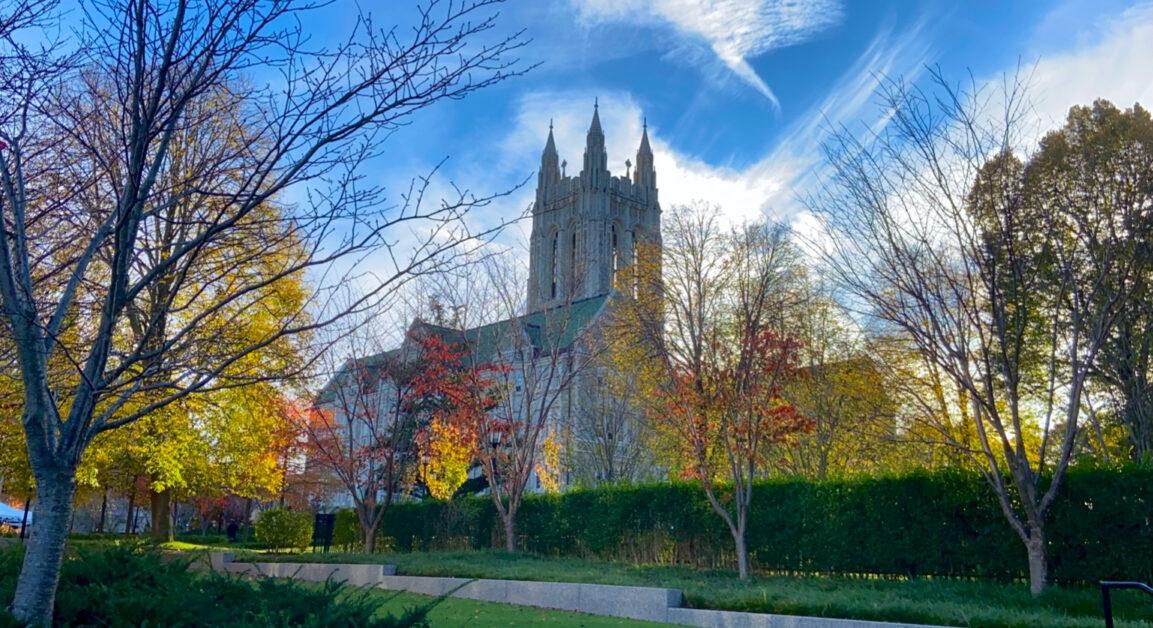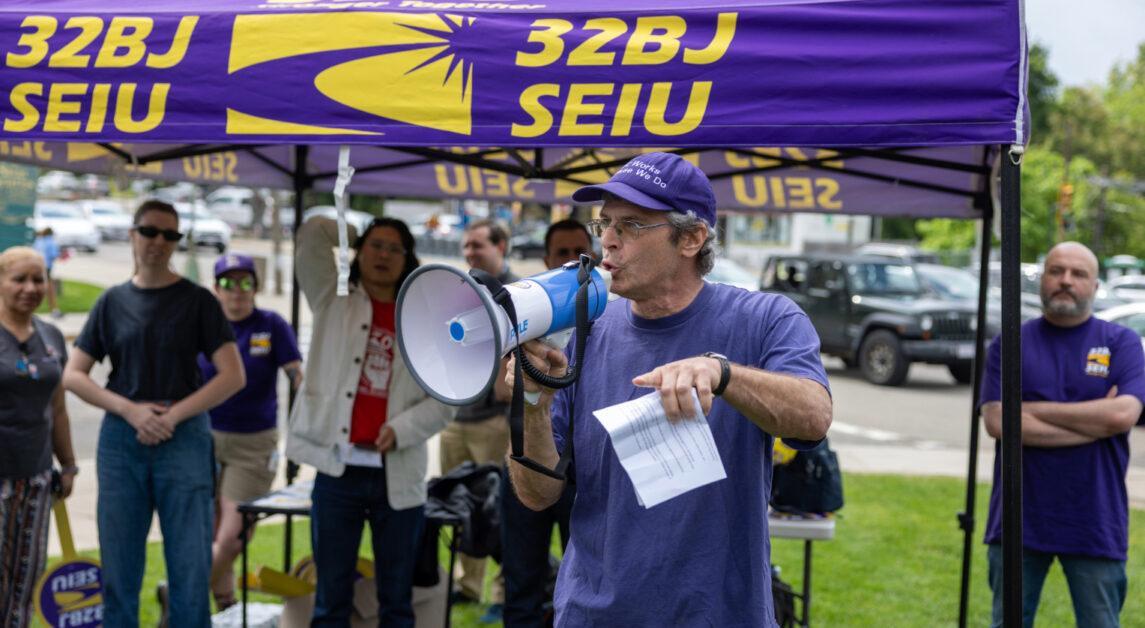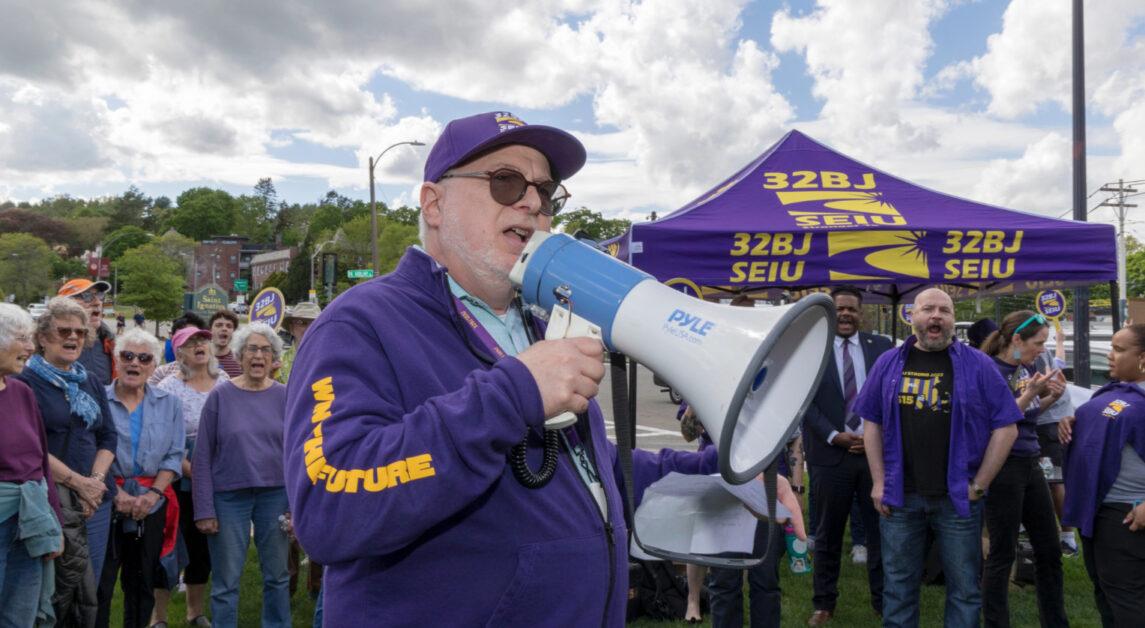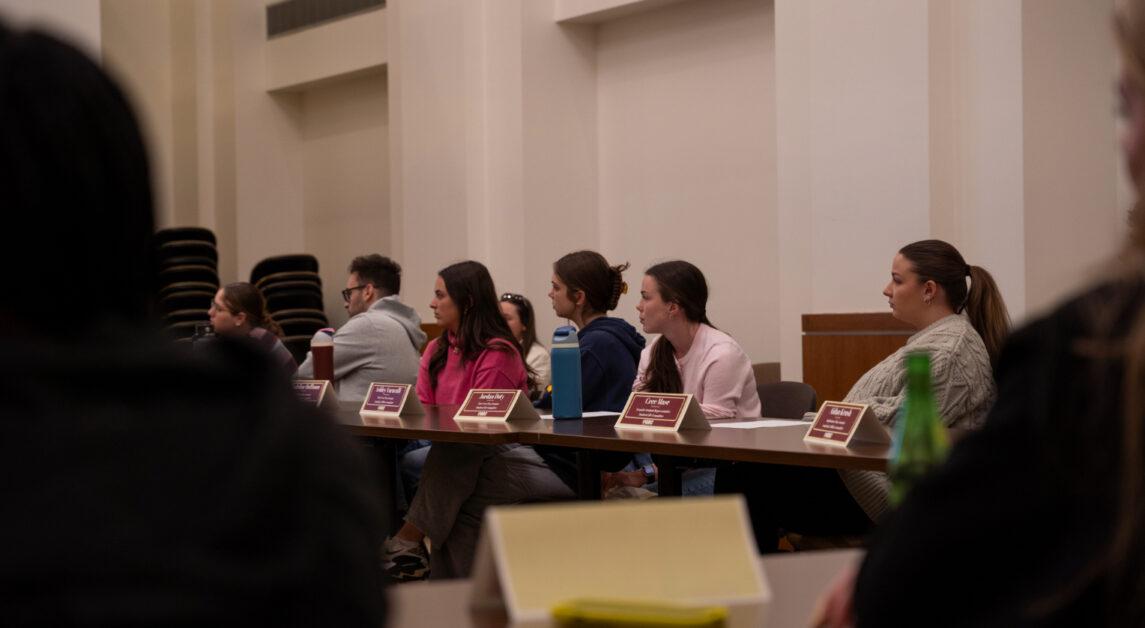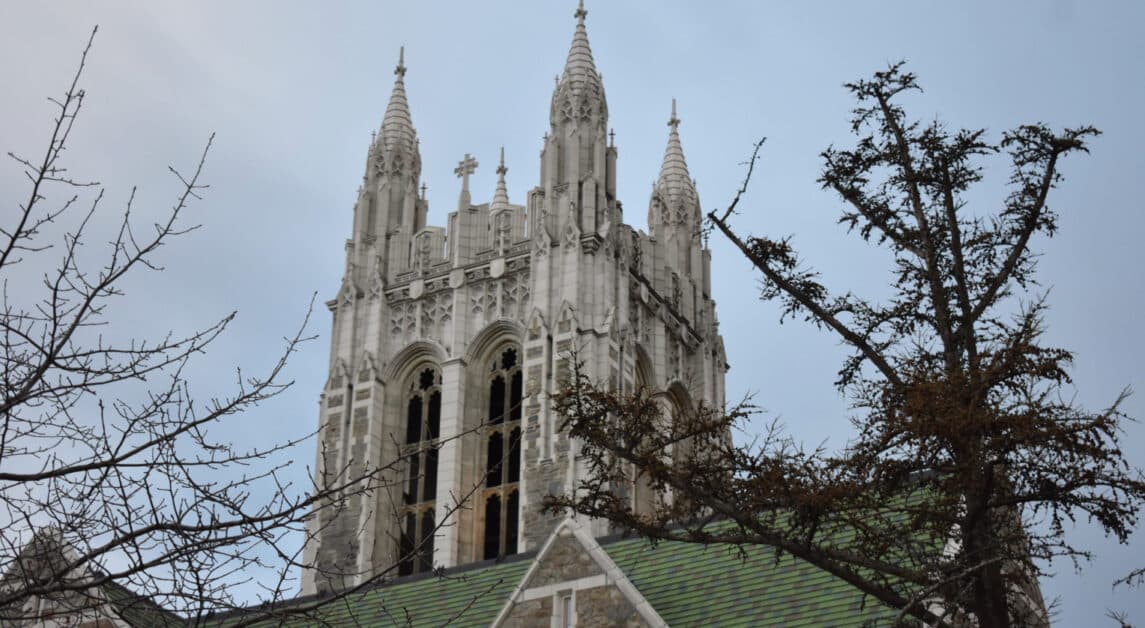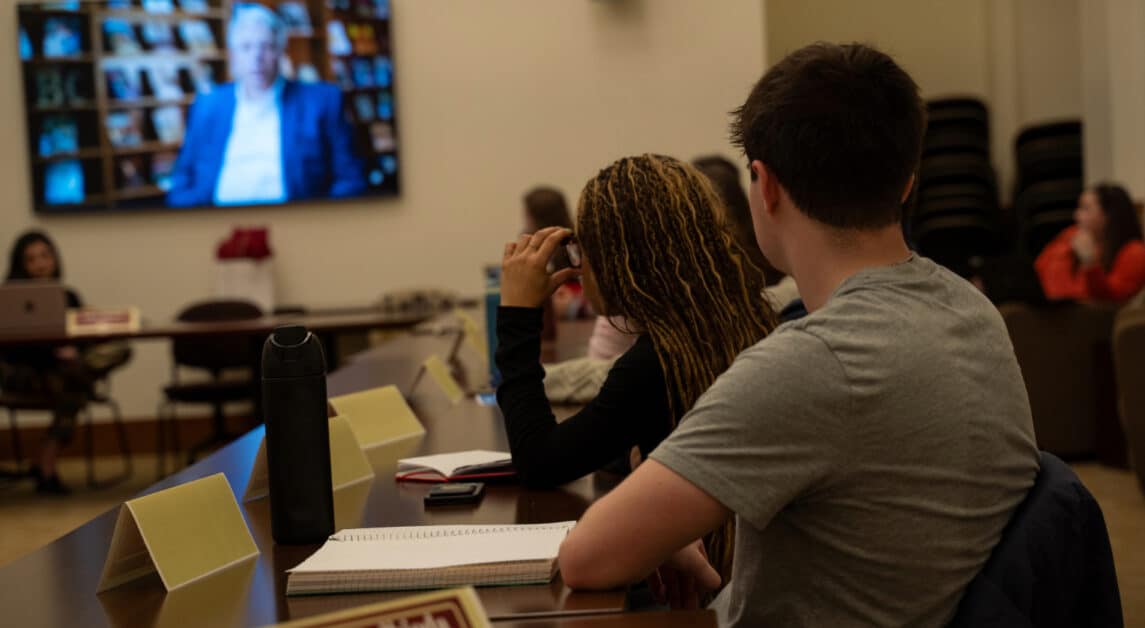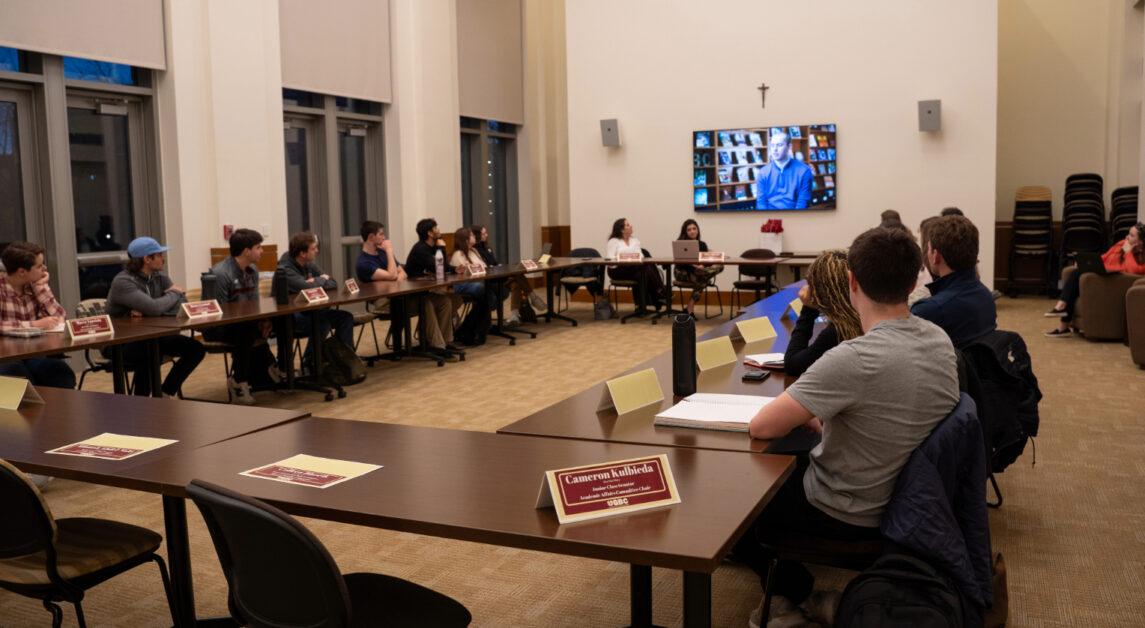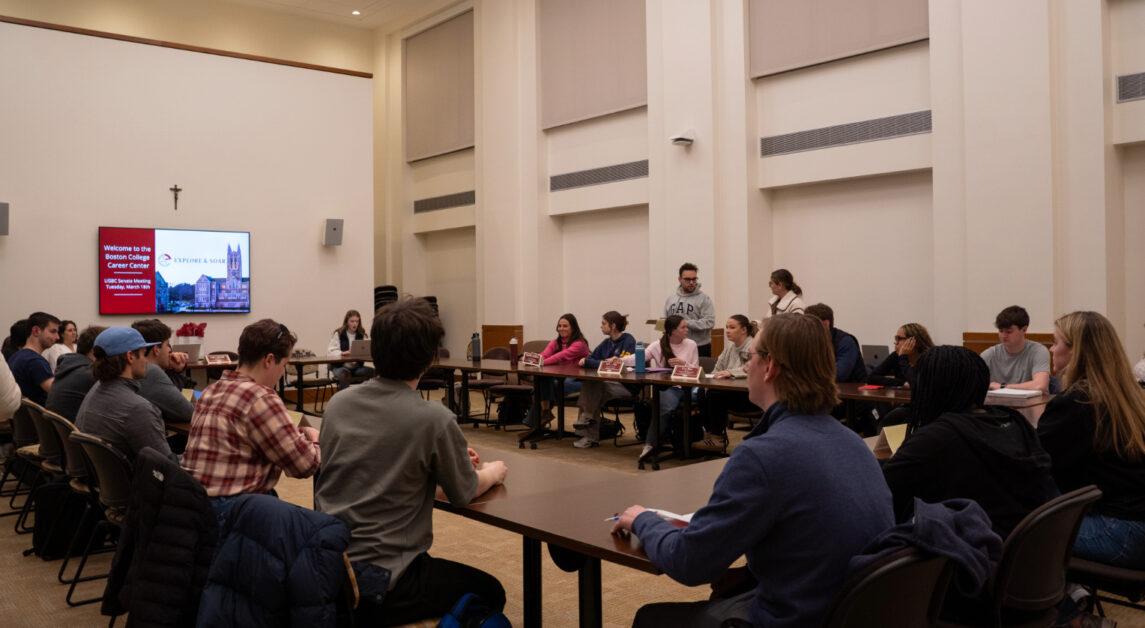“I want to emphasize that divestment is not a bad word,” Durcan, MCAS ’23, said. “As we’ll see tonight, divestment is not even radical.”
CJBC, EcoPledge of BC, FACES Council, Real Food BC, and Students for Justice in Palestine at BC (SJP) sponsored the event, where panelists argued fossil fuel divestment is a key strategy to combat climate change.
While the University has taken small steps to protect the environment, such as the Green2Go dining effort, panelists suggested the University divesting from companies that detrimentally contribute to climate change could reduce contributions to global warming on a larger scale.
Stephanie Robinson, vice president of CJBC and MCAS ’23, said the University has not revealed its investment portfolio despite CJBC’s two-year-long effort to meet with one of BC’s investment officers.
“Boston College’s portfolio is about as translucent as the wall behind me,” Robinson said.
It is important to know what BC’s investments are, as investments reflect “who we are” as a University, according to Lily Fleming, LSEHD ’25.
“It reflects what we believe in and what we think is important in the world,” Fleming said. “So our investment in [fossil fuels] says that we don’t care about climate justice as an institution.”
According to Durcan, the annual event was previously dubbed the Divestment Town Hall before Office of Student Involvement advisors strongly discouraged CJBC from using the term “divestment” in the event’s title.
“They literally said ‘you cannot use this word on your poster,’ which is kind of weird and a violation of our free speech,” Jacob Lassner, a member of CJBC and MCAS ’25, said.
The Heights was unable to confirm or deny Durcan and Lassner’s statements.
Jasmine Yehia, a member of the Young Democratic Socialists of America and MCAS ’25, spoke about the impact of fossil fuels not only on climate change, but also on working-class people. Workers involved in fossil fuel industries and the general public can suffer from health issues caused by air pollution, she said.
“It makes no sense that Boston College claims to be fulfilling the Catholic mission of faith and service while investing in these stocks,” Yehia said. “It’s misleading to students who come here because it shows the institution’s not willing to put their students first and it is abundantly clear that is true among faculty as well.”
The various organizations argued that divestment can create a “snowball effect,” where more and more companies shift their money away from fossil fuel companies. This is a positive step in the direction of combating climate change, panelists said.
Lassner also said institutionalized homophobia at BC compares to the school’s lack of action in terms of climate change and its investment in fossil fuels.
“It’s just such hypocrisy that BC says, ‘We abide by Catholic values so we have the right to discriminate against LGBTQ+ students, but we don’t abide by Catholic values when it’s time to make money,’” Lassner said.
SJP member Nick Scalera, MCAS ’23, also emphasized how BC could contribute to change by participating in the Boycott, Divestment, and Sanctions movement. The movement involves boycotting products made by Israeli companies, divesting money away from these companies, and levying economic sanctions on Israel.
“In this case, it’d be Boston College divesting funds that are directly tied to institutions, politicians, and different organizations, companies, corporations that are heavily invested in the ongoing [Israeli] occupation,” Scalera said.
The speakers concluded the town hall by encouraging students to take action against climate change, attending more informational meetings, protests, and having discussions about climate change and its impacts.
EcoPledge member Maureen Kelly, MCAS ’23, stressed the importance of students advocating for BC and other communities to address the effects of climate change and the injustices caused by it.
“We should be able to be proud of our school—not just aspects of it, but all of it,” Kelly said. “BC’s greed and desire for growth, gain, and gain above all else is clearly shown in their fossil fuel investments. We should be able to be proud of … all the values that our university lays claim to: being people for and with others.”

